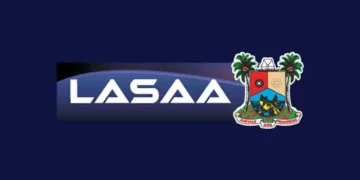Achieving its sugar for Nigeria Backward Integration Project goal, Dangote Sugar Refinery Plc is set to significantly reduce the importation of sugar into the country by 40 per cent.
Sugar plays an important role in the production of pharmaceuticals, soft drinks, confectionery, food and beverages, among others. Globally, the sugar industry remains a strategic sector, providing exports, creating thousands of jobs, generating electricity and improving the domestic economy of producing nations.
After many years of sub-optimal output, Nigeria seeks to end dependence on imports and achieve self-sufficiency and Dangote Sugar is at the forefront of ensuring the nation realise this.
The National Sugar Master Plan (NSMP), a roadmap for the attainment of self-sufficiency in sugar within the shortest time possible, estimates that the country’s demand for sugar will reach 1.7 million metric tonnes.
The president of Dangote Group, Aliko Dangote explained recently in a chat with newsmen that it was embarking on Phase II of its Sugar project, which will then cover over 100,000ha to make the sugar plant, the largest in Africa.
Dangote said, the integrated sugar complex to be located in Tunga, Awe local government area of Nasarawa state, comprises 60,000ha sugar plantation and two sugar factories with the capacity to produce 430,000 tonnes of refined white sugar per annum.
Meanwhile, the Nigerian Ports Authority (NPA)’s shipping data revealed that Auarius Honor and Ocean Crown would be at Greenview Development Nigeria Limited (GDNL), a subsidiary of Dangote Group to offload 45,850 tonnes and 46,750 tonnes respectively. Following high demand in the food and drinks sector, GDNL took delivery of 187,000 tonnes from four vessels in May this year.
At the terminal, Common Galaxy came with 48,800 tonnes; Bonny Island, 47,200 tonnes; Chayanee Naree, 46,000 tonnes, and Karteria Bluesrar, 45,000 tonnes. Also, in April, the terminal took delivery of 91,600 tonnes when Unity Bluestar offloaded 47,200 tonnes and Ecoatlantic, 44,400 tonnes.
The NPA shipping data also noted that 67,000 tonnes of sugar were offloaded at ENL Consortium and GDNL, noting that, the ENL terminal took delivery of 20,000 tonnes from Doro, while Baltic Mantis discharged 47,000 tonnes at GDNL.
It added that Genco Picardy arrived with 46,500 tonnes in February, while two vessels offloaded 101,422 tonnes in January, stressing that, Desert Calm berthed with 55,352 tonnes and Pauline, 46,070 tonnes. Finding from Index Mundi, a trade portal revealed that the country has already imported 965,000 metric tonnes of raw sugar this year.
Also, the country imported $1.82 billion beet sugar, sugar syrups, and other sugar confectionery in the last two years. Sugar is currently on the list of commodities on the foreign exchange restriction list of the Central Bank of Nigeria (CBN). Also, statistics from Trade Data Monitor (TDM) based on the Brazilian Foreign Trade explained that Brazil exports rose from $458.9 million in 2019 to $702.8 million in 2020.
According to TDM, Brazil’s cumulative raw sugar exports to Nigeria in 2020/21 season was 1.62 million tonnes, while domestic cane sugar production has slumped from 75,000 tonnes to 70,000 tonnes, about 6.7 per cent decline within one year. The country had projected to meet 800,000 tonnes target of raw sugar production by 2022 as demand by the food and drink manufacturing and retail markets is on the increase.
However, Nigeria could not meet up to five per cent target as data from National Sugar Development Council (NSDC) revealed that in 2016, local production of refined sugar was 25,000 tonnes; 2017, 20,184 tonnes; 2018, 14,918 tonnes and 2019, 28,597 tonnes; 2020, 75,000 tonnes and 2021, 75,000 tonnes.
Also, at the recently held Dangote Sugar’s 16th Annual General Meeting (AGM), Dangote, said the goal of Dangote Sugar Backward Integration Projects Master plan remains the achievement of 1.5 million MT annually from locally grown sugarcane in support of the quest for sugar sufficiency in the country by the federal government of Nigeria.
He stated that this will be achieved in addition to the extended value chain benefits that will be derived from the projects including thousands of jobs that will be generated in the sector from these projects.
He assured of the company’s commitment to the achievement of Sugar Backward integration projects, which is the future of the industry in Nigeria, saying this will keep us on our sustained growth path and we will continue to deliver and improve our quality service while delivering value to all stakeholders.
Also, the group managing director/chief executive officer of Dangote Sugar, Mr. Ravindra Singhvi said that “we remained ahead of the pack in implementation of the National Sugar backward Integration Development Master Plan.” He said achievement of the Dangote Sugar Master Plan remained paramount in our operations.
He explained that “Steady progress is now being made as we continue the rehabilitation and expansion project at Dangote Sugar, Numan; and development activities at the Nasarawa Sugar Company Limited, Tunga.
“The board and management remain resolute and commitment to ensuring a sustainable future for our business with the Dangote Sugar Master Plan.”
Singhvi added that the implementation of the sugar projects initiatives continues at a high tempo despite the challenges the Company face, ranging from the inability to access the land acquired for the sugar projects, community unrests and the aftermath of the COVID-19 pandemic negative impact on the economic activities.
He said: “we remain confident that the backward integration programme will deliver huge benefits and positive impacts on the country’s economic land scape.”
Dangote Sugar Refinery, the largest sugar refinery in sub-Saharan Africa and one of the largest in the world, with an installed sugar refining capacity of 1.44 MT/PA at the same location. Dangote Sugar currently has three subsidiaries, Nasarawa Sugar Company Limited, Dangote Taraba Sugar Limited and Dangote Adamawa Sugar Limited.





